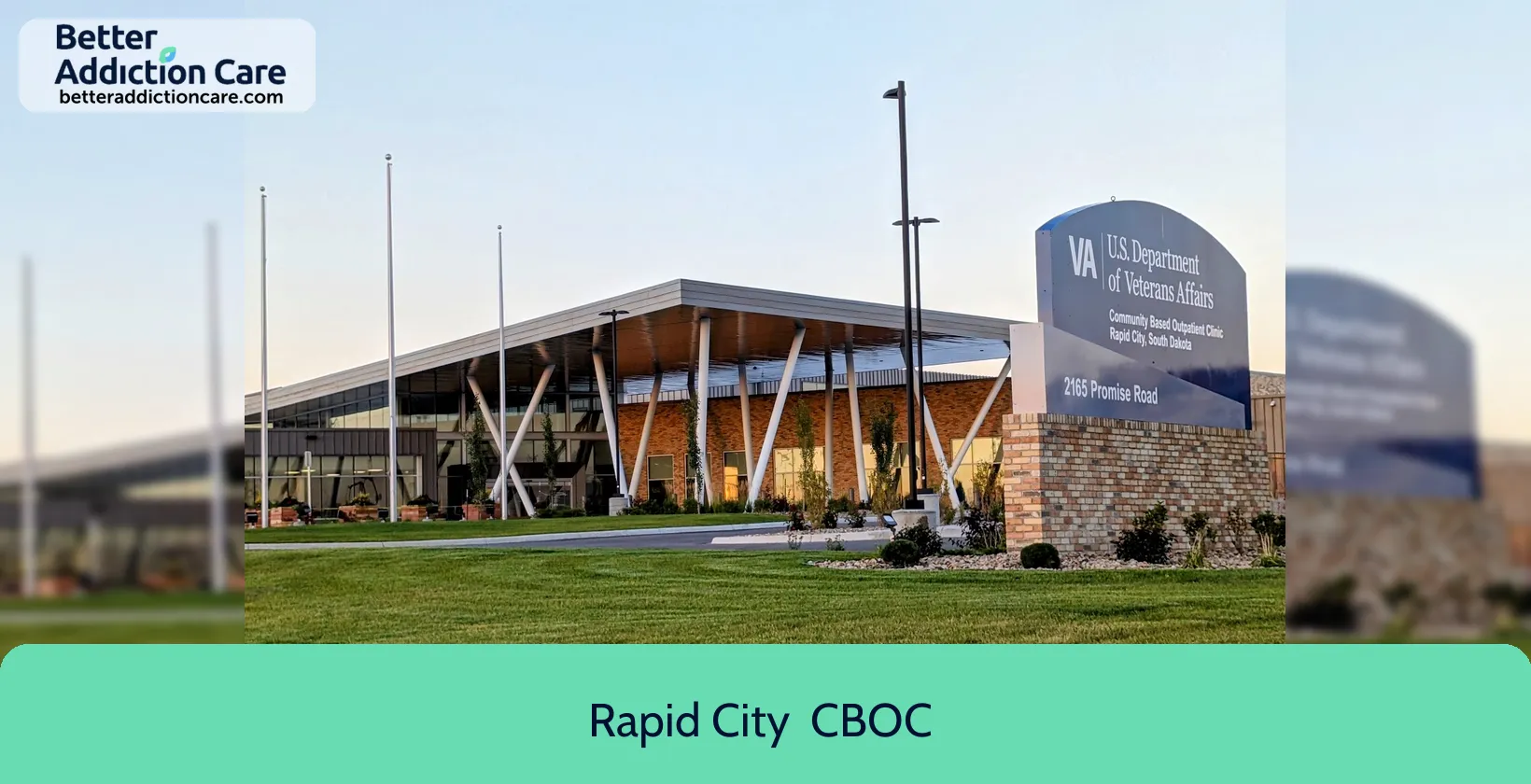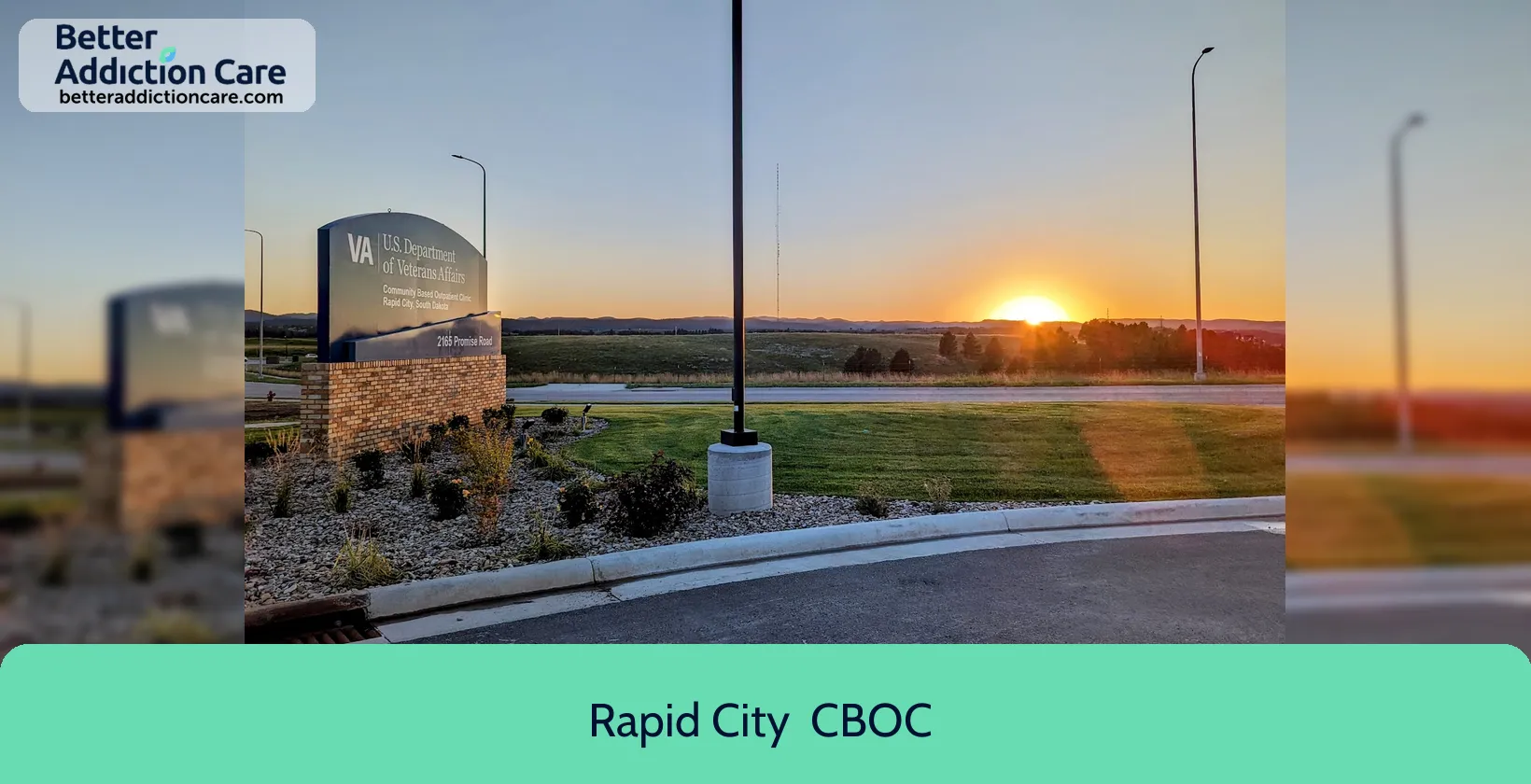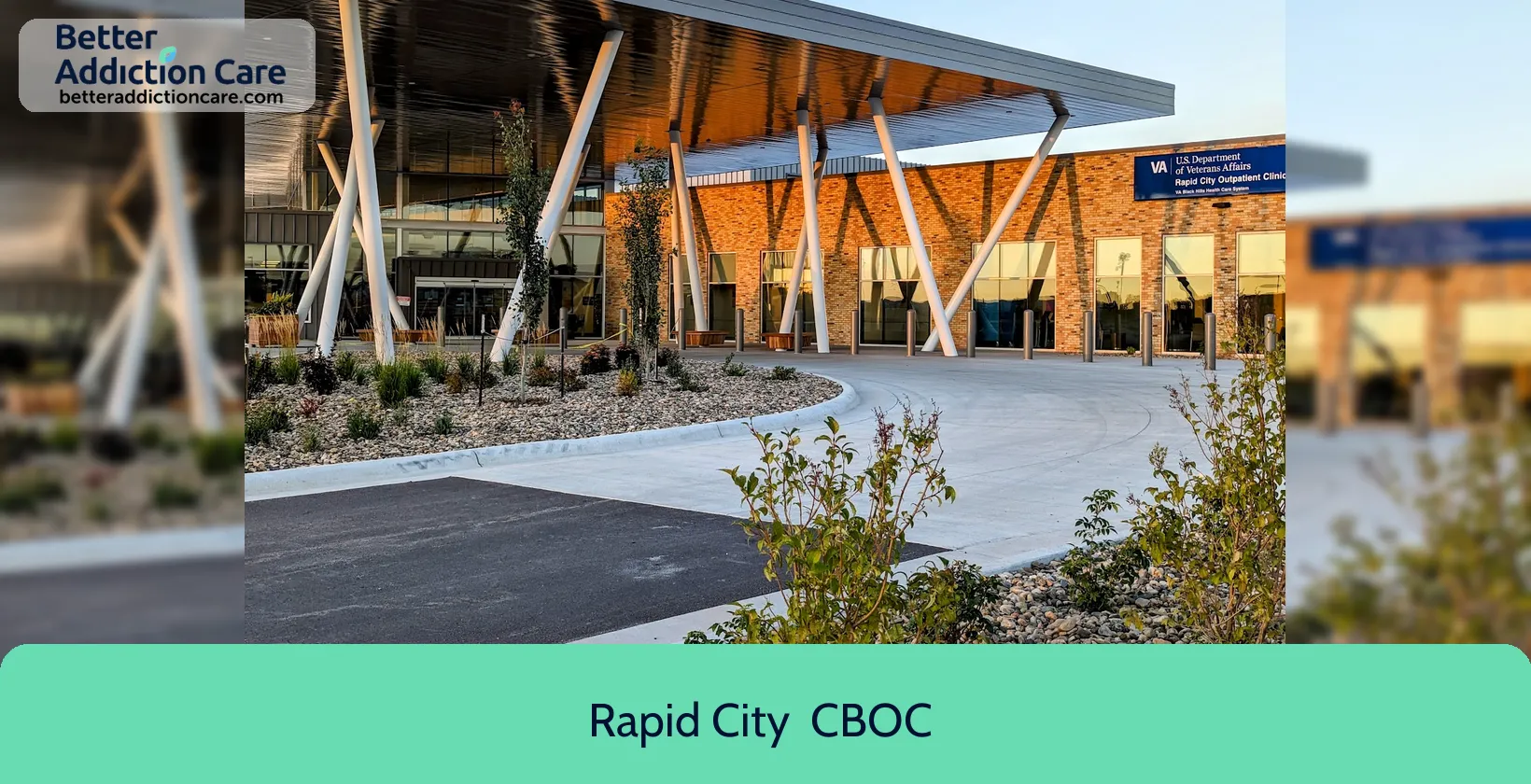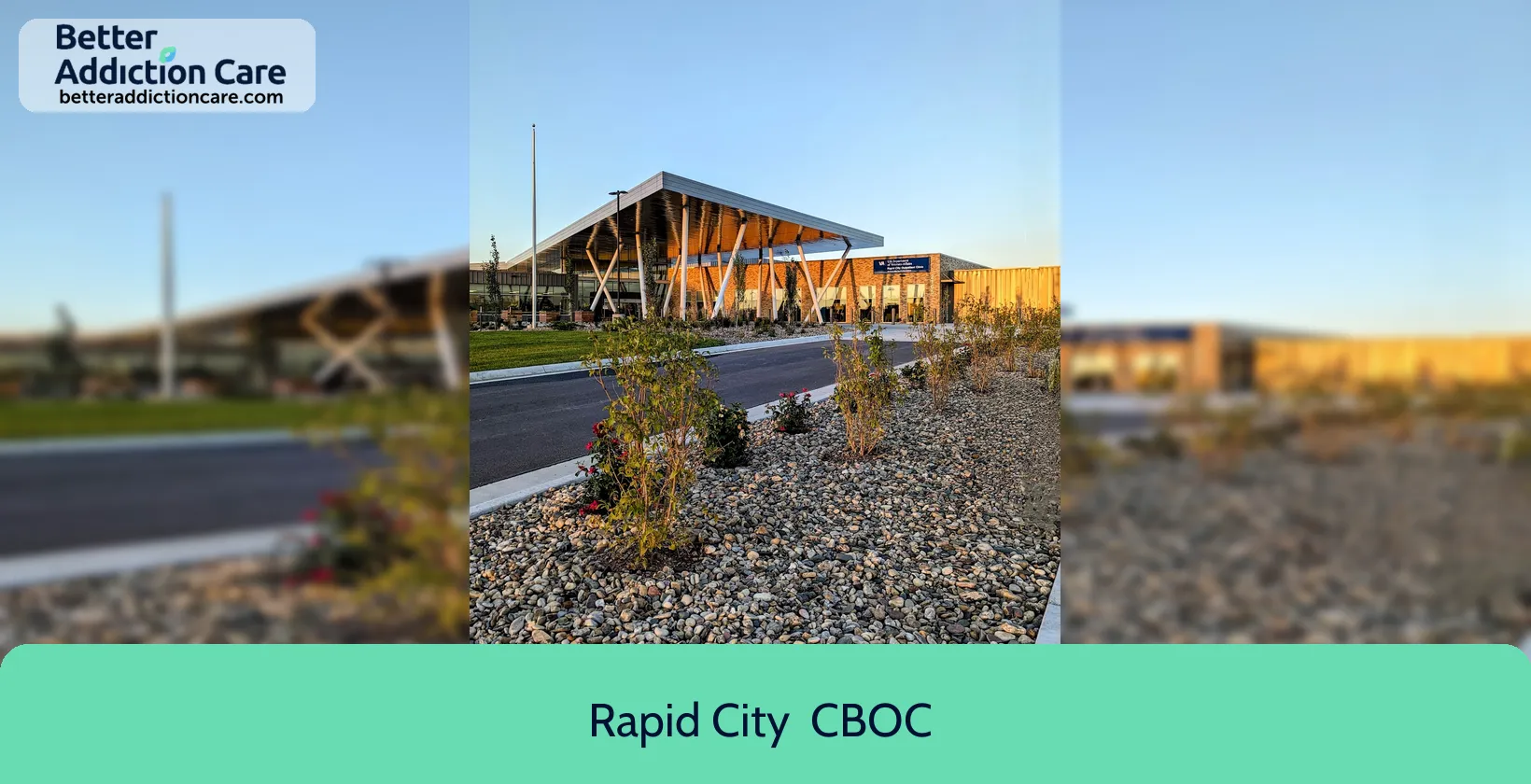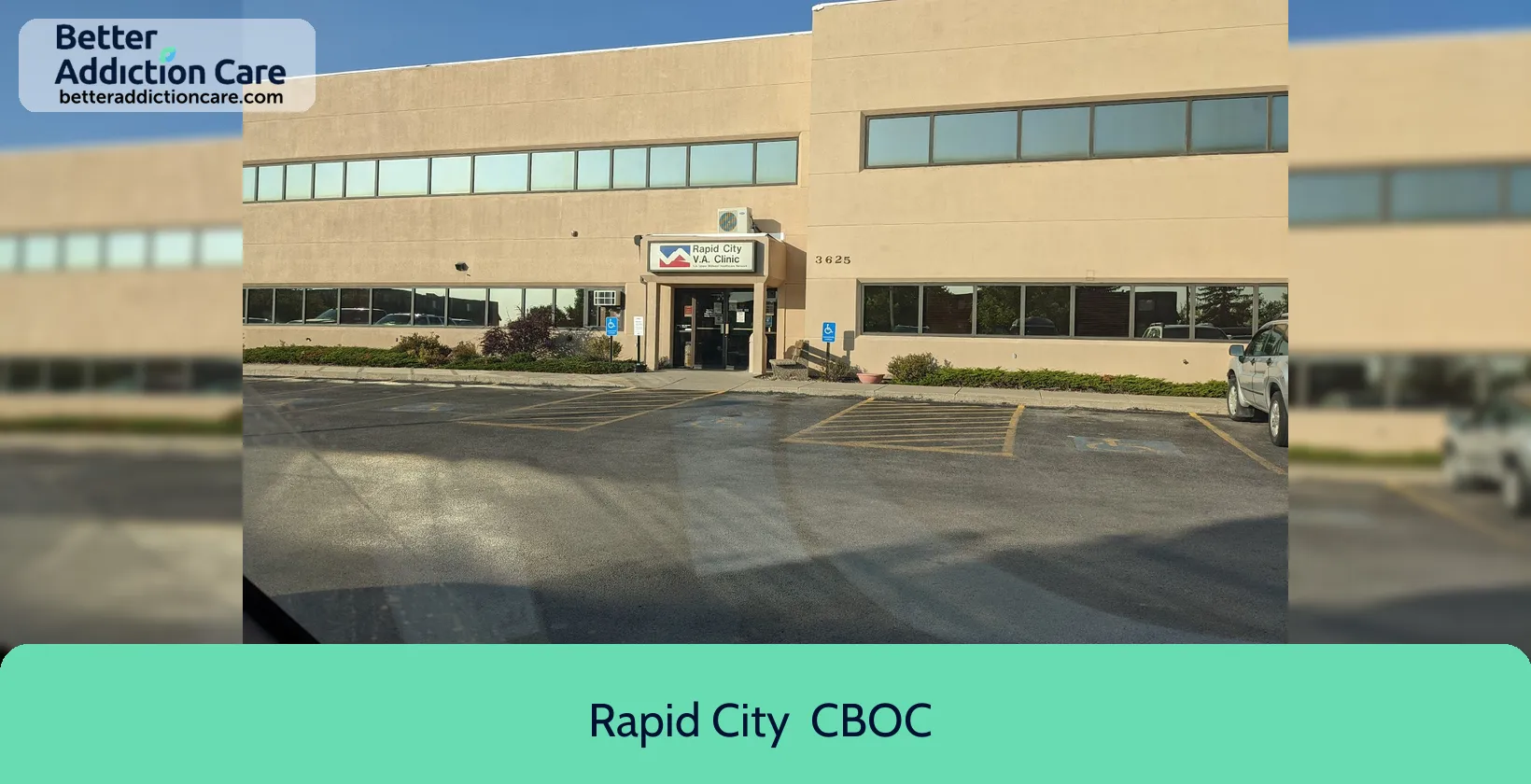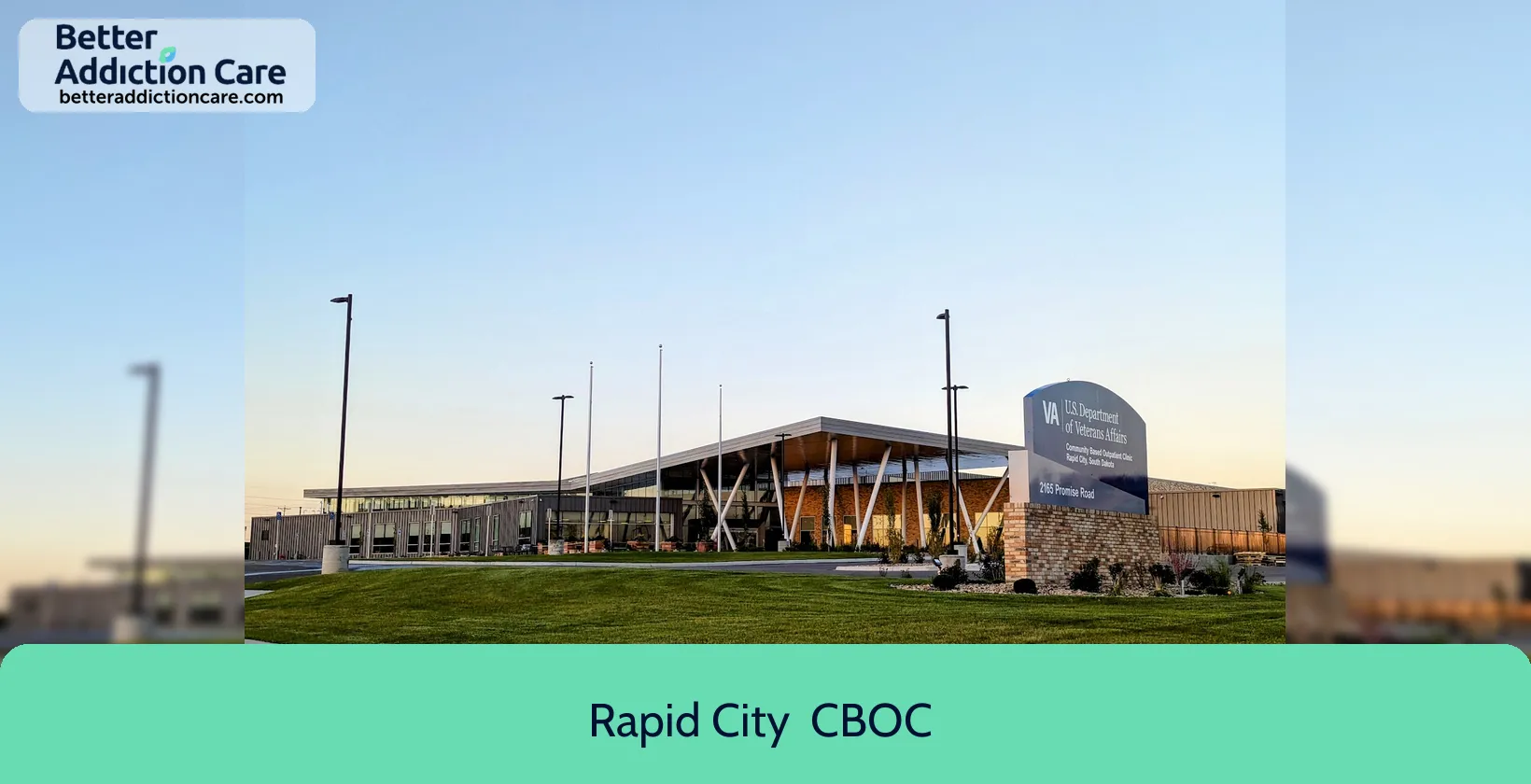Rapid City - CBOC - Outpatient Treatment Program
Overview
Rapid City - CBOC - Outpatient Treatment Program is a substance abuse treatment center for people seeking treatment near Pennington County. As part of their treatment modalities for recovery, Rapid City - CBOC - Outpatient Treatment Program provides cognitive behavioral therapy, telemedicine/telehealth therapy, and substance use disorder counseling during treatment. Rapid City - CBOC - Outpatient Treatment Program is located in Rapid City, South Dakota, accepting cash or self-payment for treatment.
Rapid City - CBOC - Outpatient Treatment Program at a Glance
Payment Options
- Cash or self-payment
- Medicaid
- Medicare
- Federal military insurance (e.g., TRICARE)
- Federal, or any government funding for substance use treatment programs
Assessments
- Screening for tobacco use
- Comprehensive mental health assessment
- Comprehensive substance use assessment
- Interim services for clients
- Outreach to persons in the community
Age Groups
- Seniors or older adults
- Young adults
- Adults
- Seniors
Ancillary Services
- Case management service
- Integrated primary care services
- Suicide prevention services
- Early intervention for HIV
- Mental health services
Highlights About Rapid City - CBOC - Outpatient Treatment Program
7.43/10
With an overall rating of 7.43/10, this facility has following balanced range of services. Alcohol Rehabilitation: 8.00/10, Drug Rehab and Detox: 7.23/10, Insurance and Payments: 6.67/10, Treatment Options: 7.82/10.-
Alcohol Rehabilitation 8.00
-
Treatment Options 7.82
-
Drug Rehab and Detox 7.23
-
Insurance and Payments 6.67
Accreditations
The Joint Commission:

The Joint Commission accreditation for addiction and behavioral health is a prestigious recognition signifying a facility's commitment to delivering high-quality care and safety for individuals dealing with substance abuse and mental health issues. It involves rigorous evaluations and assessments, ensuring patients receive evidence-based treatment and exceptional care. This accreditation demonstrates a facility's dedication to continuous improvement and ethical practices, building trust among patients and healthcare professionals seeking top-tier addiction and behavioral health services.
Registration: 194232
Treatment At Rapid City - CBOC - Outpatient Treatment Program
Treatment Conditions
- Alcoholism
- Mental health treatment
- Substance use treatment
- Co-occurring Disorders
Care Levels
- Outpatient
- Outpatient methadone/buprenorphine or naltrexone treatment
- Intensive outpatient treatment
- Regular outpatient treatment
- Aftercare
Treatment Modalities
- Cognitive behavioral therapy
- Telemedicine/telehealth therapy
- Substance use disorder counseling
- Trauma-related counseling
- Smoking/vaping/tobacco cessation counseling
Ancillary Services
Additional Services
- Pharmacotherapies administered during treatment
- Housing services
- Drug or alcohol urine screening
Special Programs
- Clients with co-occurring mental and substance use disorders
- Veterans
- Clients who have experienced trauma
- Active duty military
- Persons with post-traumatic stress disorder (PTSD)
Get Help Now
Common Questions About Rapid City - CBOC - Outpatient Treatment Program
Contact Information
Other Facilities in Rapid City

6.65

6.74

6.89

6.89

6.56

6.68

6.89

6.96
Browse rehab centers near Rapid City and in other cities across South Dakota
DISCLAIMER: The facility name, logo and brand are the property and registered trademarks of Oglala Sioux Tribe - Native Healing Program, and are being used for identification and informational purposes only. Use of these names, logos and brands shall not imply endorsement. BetterAddictionCare.com is not affiliated with or sponsored by Oglala Sioux Tribe - Native Healing Program.
